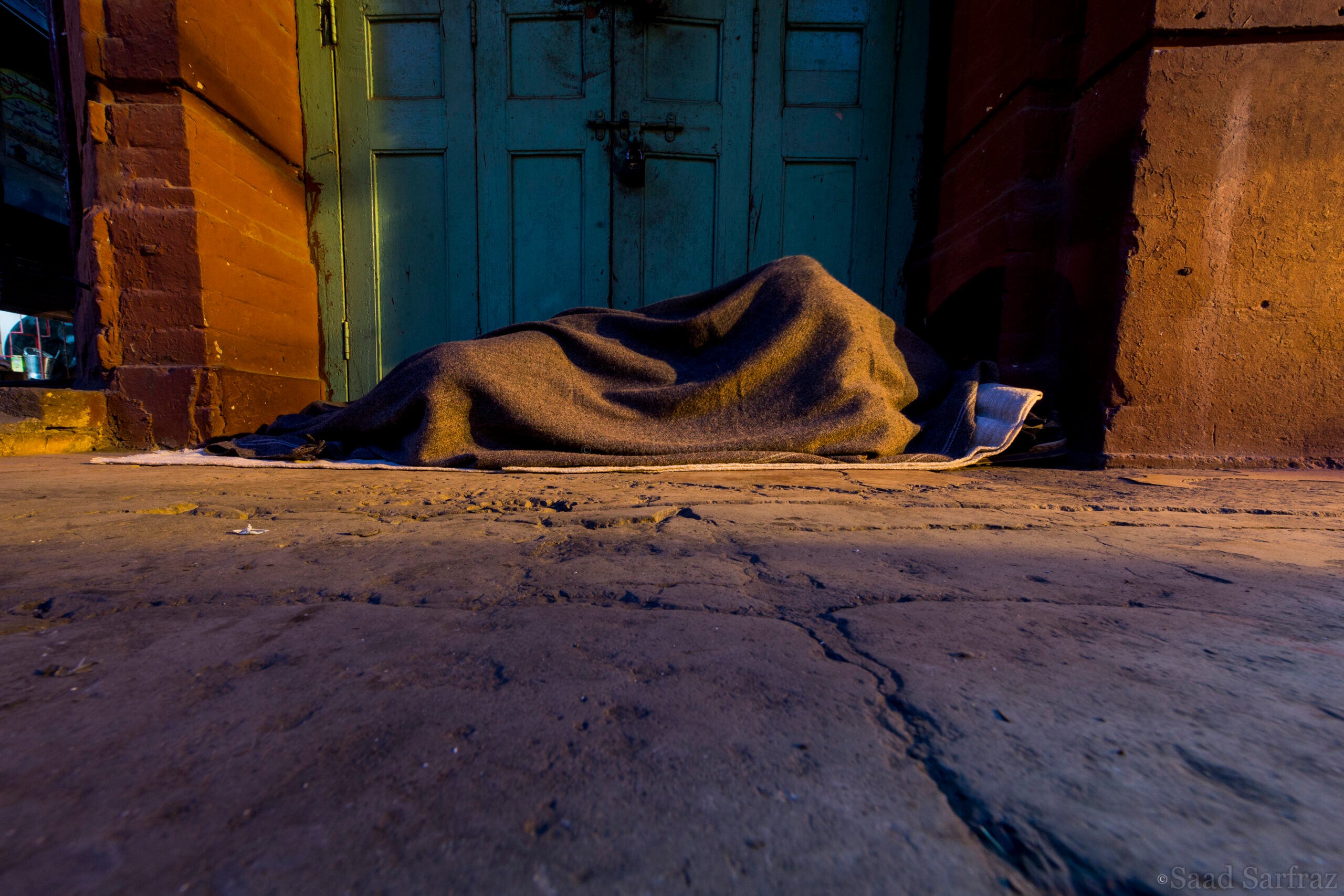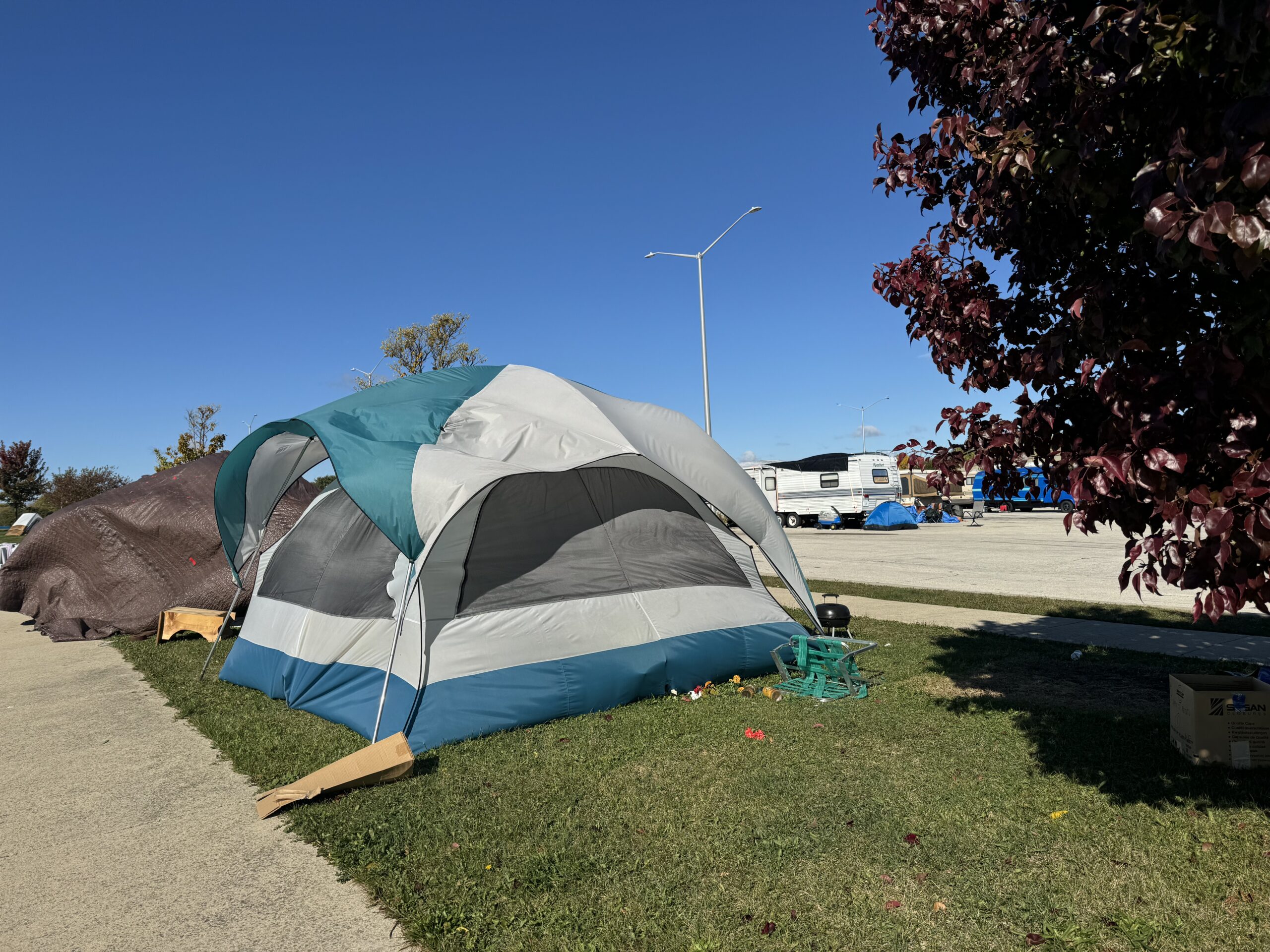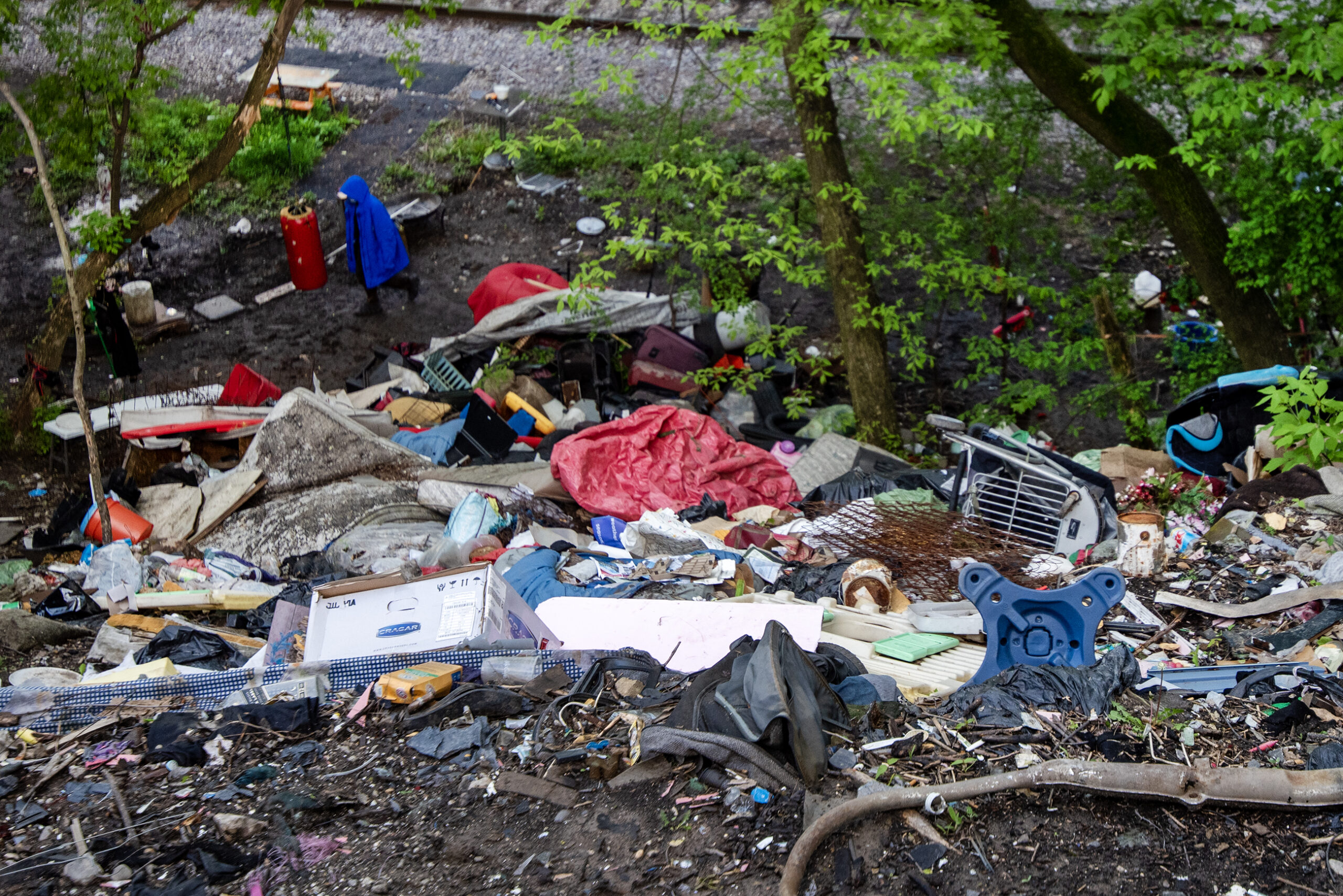La Crosse and La Crosse County will spend the next few months developing a five-year plan to reduce homelessness — after efforts to curb homelessness in the area have run into roadblocks.
Earlier this year, a homeless encampment in a La Crosse park was shut down. The people that were living there are now scattered across the city, still living outside.
And last year, the La Crosse City Council approved a plan to spend $1.5 million of the city’s funds from the federal American Rescue Plan to purchase and renovate a motel for a temporary bridge housing project. But that fell through.
News with a little more humanity
WPR’s “Wisconsin Today” newsletter keeps you connected to the state you love without feeling overwhelmed. No paywall. No agenda. No corporate filter.
Efforts by the city to buy a couple of vacant office buildings to help in the efforts to reduce homelessness have also failed.
“There have been great intentions with the goal of helping people both in the short-term and in the long-term,” said Brian Sampson, the homeless services coordinator for the City of La Crosse. “We have not been able to find those long-term sustainable solutions to get us out of the cycle our community is in right now.”
Homelessness has increased in the city since the start of the COVID-19 pandemic. There are an estimated 80 homeless people living in La Crosse this summer, Sampson said, adding that an annual count of the homeless population in La Crosse in January 2023 found nearly 300 people were unsheltered. Two years before the same count found 188 people were living in the city without housing.
People who have been working on the issue said the five-year plan will likely have to rely on buying or building a permanent facility.
“Ultimately, we are talking about housing and people need physical spaces to live in. Physical spaces on some level are going to be a part of it,” said Isaac Hoffman, supervisor of community programs and prevention for the La Crosse County Human Services Department. “What we hope to learn is what types of spaces are needed for the population that we have.”
A report earlier this month from Forward Analytics found the state needs 140,000 housing units in the next decade to keep pace with current demand of the overall population.
“Communities that struggle with homelessness the most have one common denominator and that’s a lack of affordable housing,” Sampson said. “That’s certainly an issue the City of La Crosse struggles with. In this plan, we have some strategies we want to pursue to bridge that gap until some of that housing comes online.”
“One of the strategies we are exploring are city-held leases where the city potentially holds some leases with private landlords, and we can help remove barriers for folks to get into housing,” he added.
The five-year plan will rely on evidence-based approaches like Housing First — in which getting people into permanent housing is a priority.
“It’s the most heavily researched strategy that our nation and the world has. There is no perfect model. If there was, it would be implemented all over already,” Sampson said. “It uses housing as the base for change instead of the reward. Instead of asking somebody who is living in a park or parking ramp to get sober and get a job and then earn housing, it’s trying to do both at the same time.”
The goal is to create a scenario where the city and county eventually achieves “functional zero homelessness.”
“Functional zero really means that if somebody is experiencing homelessness it’s rare, brief, and it only happens one time,” Sampson said. “If they come into the system, we are able to offer them a temporary spot until they get permanent housing and more people are finding housing every month than people who are entering homelessness.”
Other issues the planning process may deal with include the input of people who are homeless and the agencies that deal with those experiencing homelessness.
“Hopefully, our providers who are doing this tough work, we find a way to be more supportive, so their work is sustainable,” Hoffman said.
City and county leaders are expected to consider the plan by the end of the year. It could go into practice as early as 2024.
Wisconsin Public Radio, © Copyright 2025, Board of Regents of the University of Wisconsin System and Wisconsin Educational Communications Board.






